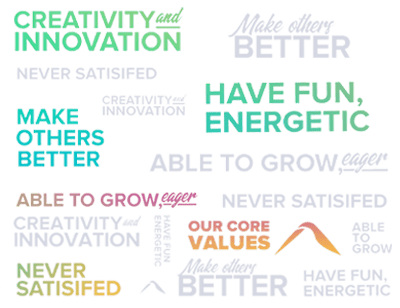
Our Mission
At Bill Gosling Outsourcing, our mission is to be the cornerstone of success by empowering businesses to deliver extraordinary customer experiences that know no boundaries. We are driven by a vision to elevate our clients' operations, delivering exceptional value that extends far beyond the bottom line.
Our unwavering commitment to this mission is driven by a desire to see our clients thrive. We are dedicated to innovation, operational excellence, and the pursuit of perfection in all that we do. As a partner, we strive to be the driving force behind our clients' success, propelling them to new heights and helping them achieve their goals. Our mission is a testament to our commitment to excellence, our clients, and our enduring journey toward unparalleled success. "Making lives better one connection at a time"
Core Values

Never Satisfied
We're a team of individuals who want to win and we commit endlessly to this outcome. We win for our Goslings, our clients, and our shared customers - ensuring we're the sharpest flying V in the sky.

Able to Grow, Eager
To get better, we must constantly crave to learn. We set regular goals for our professional development, hold ourselves accountable to these goals, and ensure our flock is always flying to new heights.

Make Others Better
For our business to survive and thrive, we all need to get better. That means every flapping set of wings, every chiming honk, and every single Gosling is getting better and helping others achieve the same.

Creativity and Innovation
We know 'old factory thinking' doesn't win races, so we innovate to build a better mouse trap - or pigeon trap - for ourselves and our clients. We crave faster and more effective execution that makes our solutions and services superior – superior to our competition and superior to what our clients can do themselves.

Have Fun, Energetic
Maintaining a global flock is hard work, and we know that celebrating our wins along the way, taking time to laugh, and generally having some fun keeps the right balance for the Gosling family.



